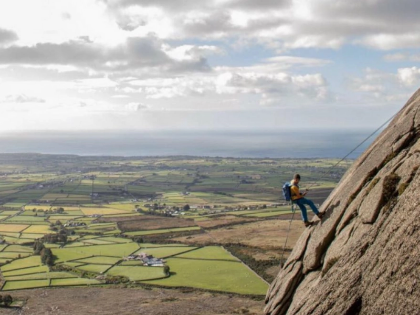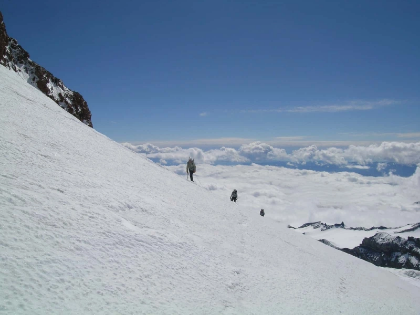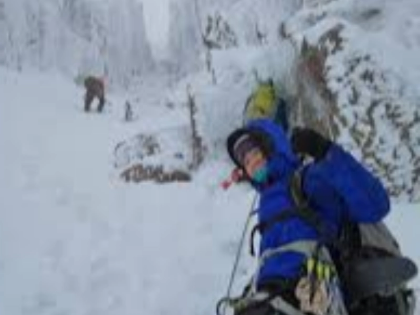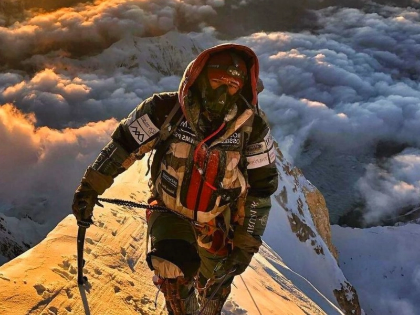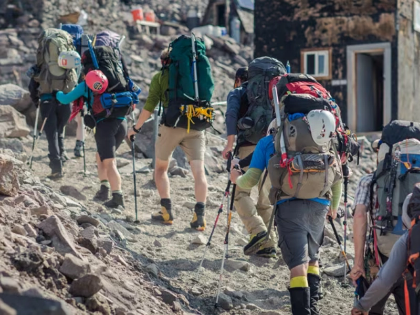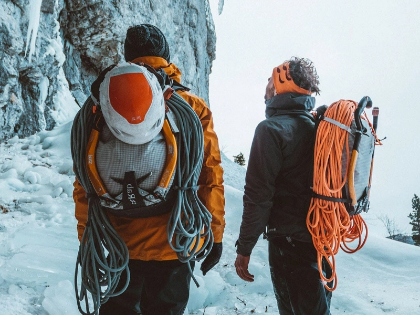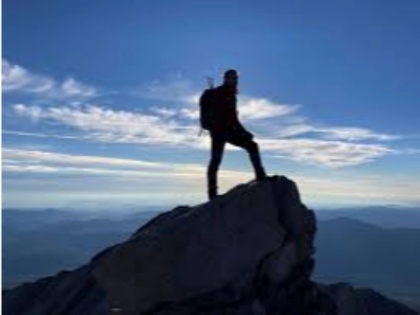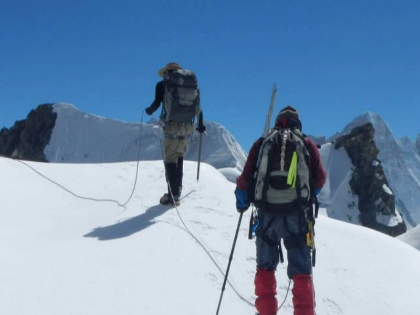Is It Too Late to Begin Mountaineering at 50?
You can continue to climb into your middle years. It blends focus, balance, strength, and endurance. It's a fantastic full-body workout that is less taxing on the back than the majority of other weight-bearing activities. When they discover that climbing is not just for young people, many elderly people are taken aback. Several climbers have reached Everest's summit well into their seventies.
It’s a sport for everyone
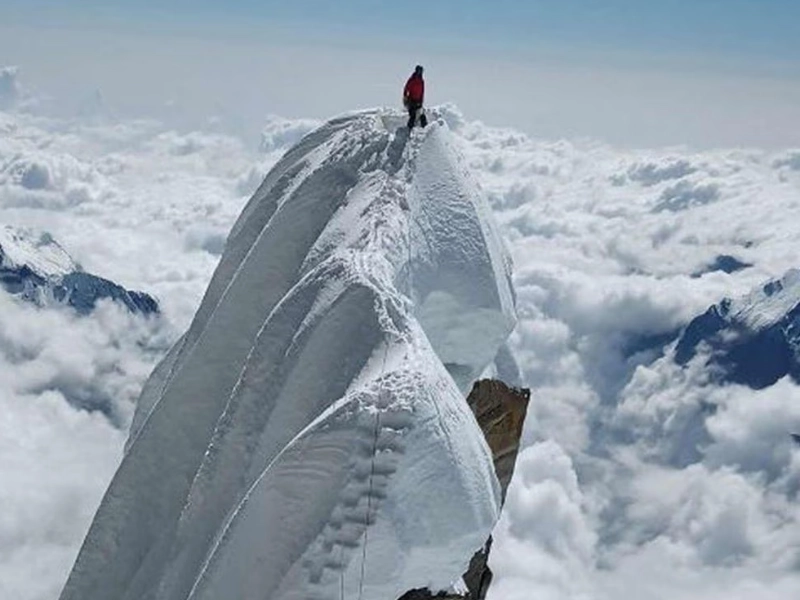 As long as they have the necessary skills, safety gear, and training, people of all ages can begin mountaineering. Mountaineering is a fantastic method to improve your fitness and fortify your resolve, whether your goal is to climb a challenging peak or just lose weight.
In addition to its physical advantages, mountain climbing fosters an appreciation for life's small pleasures. One of the most crucial aspects of any mountaineering journey is stopping to take in the landscape and fauna.
Lastly, developing ties and friendships through mountaineering is a terrific sport. Since mountaineers typically climb in groups, you'll encounter a wide variety of people on your excursions. Additionally, you'll be able to spread the word about your love of the mountains to others, which could add to the enjoyment of your travels. Additionally, the social aspects of mountaineering might assist you in lowering stress and enhancing your mental well-being.
As long as they have the necessary skills, safety gear, and training, people of all ages can begin mountaineering. Mountaineering is a fantastic method to improve your fitness and fortify your resolve, whether your goal is to climb a challenging peak or just lose weight.
In addition to its physical advantages, mountain climbing fosters an appreciation for life's small pleasures. One of the most crucial aspects of any mountaineering journey is stopping to take in the landscape and fauna.
Lastly, developing ties and friendships through mountaineering is a terrific sport. Since mountaineers typically climb in groups, you'll encounter a wide variety of people on your excursions. Additionally, you'll be able to spread the word about your love of the mountains to others, which could add to the enjoyment of your travels. Additionally, the social aspects of mountaineering might assist you in lowering stress and enhancing your mental well-being.
It’s a challenge
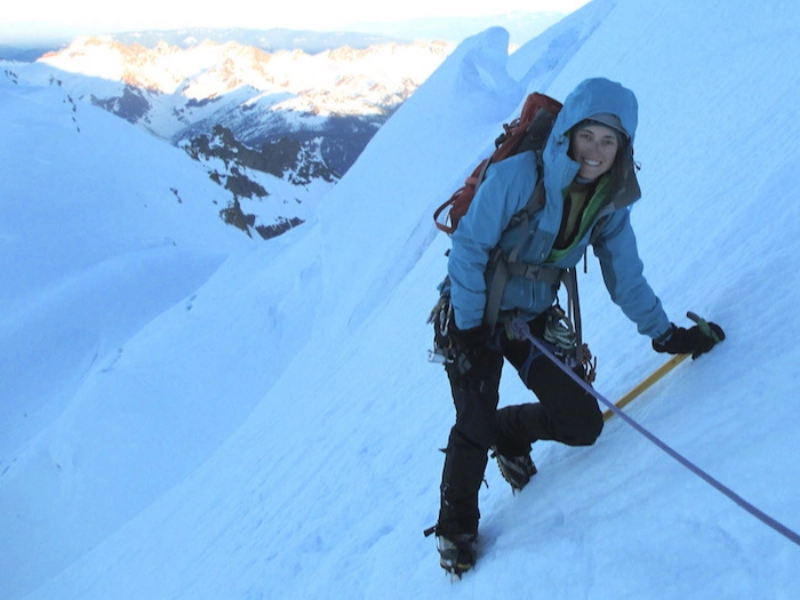 Cultivating your inner explorer through mountaineering is highly recommended. It's a demanding task that takes a lot of planning and is both mental and physical. To begin, you can enroll in a course or hire a guide to teach you the necessary skills. It's crucial to go cautiously and gradually increase your experience. This will shield you from harm and help you avoid making poor choices when faced with risky circumstances.
Once you've mastered the fundamentals, it's a good idea to practice some of the technical abilities you've learned in low-consequence novice climbing locations. By doing this, you'll maintain your proficiency and get ready for the real deal.
The majority of adults over 50 are physically capable of summiting mountains. But the majority of accidents occur during the descent. It's critical to maintain mental focus and resist becoming sidetracked by the need to cross something off an imaginary list or by the summit selfie. Setting process-oriented goals, such as a body weight goal or a distance to run, can provide leverage for daily action.
Cultivating your inner explorer through mountaineering is highly recommended. It's a demanding task that takes a lot of planning and is both mental and physical. To begin, you can enroll in a course or hire a guide to teach you the necessary skills. It's crucial to go cautiously and gradually increase your experience. This will shield you from harm and help you avoid making poor choices when faced with risky circumstances.
Once you've mastered the fundamentals, it's a good idea to practice some of the technical abilities you've learned in low-consequence novice climbing locations. By doing this, you'll maintain your proficiency and get ready for the real deal.
The majority of adults over 50 are physically capable of summiting mountains. But the majority of accidents occur during the descent. It's critical to maintain mental focus and resist becoming sidetracked by the need to cross something off an imaginary list or by the summit selfie. Setting process-oriented goals, such as a body weight goal or a distance to run, can provide leverage for daily action.
It’s a social activity
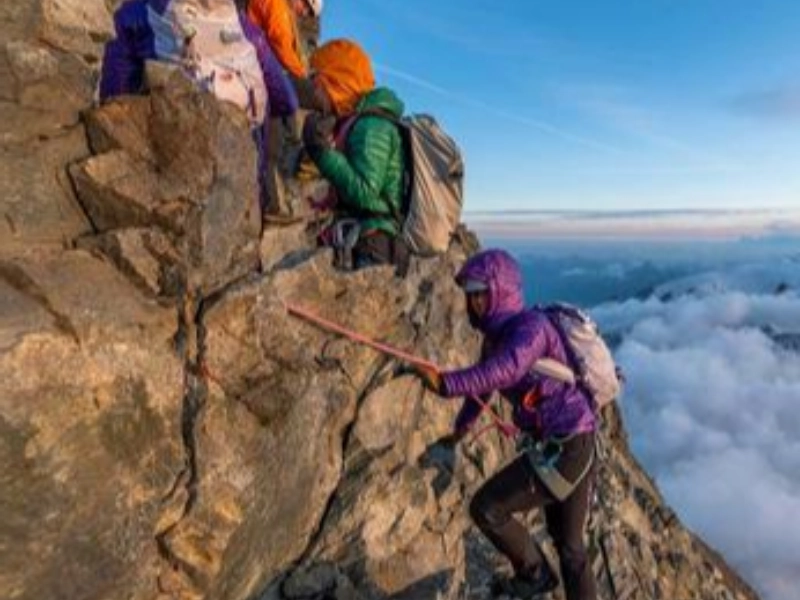 As a social sport, mountaineering demands a strong sense of dedication and teamwork. It's also a fantastic way to make new friends and gain a fresh perspective on the world. Mountaineering clubs can be found online, and local events are a good place to meet others.
Climbing mountains can improve your cardiovascular health and increase your muscle endurance. It can also help you become more coordinated and balanced. It's crucial to warm up your body before a climb by performing dynamic stretches and raising your heart rate to the point of mild perspiration. You can then walk and do static stretches to cool down.
Before you begin, it is a good idea to enroll in a mountaineering course. This will help you comprehend the abilities and information required for success. It's far superior to going out to a movie or getting a drink with friends. A training regimen can also help you stay injury-free and perform better.
As a social sport, mountaineering demands a strong sense of dedication and teamwork. It's also a fantastic way to make new friends and gain a fresh perspective on the world. Mountaineering clubs can be found online, and local events are a good place to meet others.
Climbing mountains can improve your cardiovascular health and increase your muscle endurance. It can also help you become more coordinated and balanced. It's crucial to warm up your body before a climb by performing dynamic stretches and raising your heart rate to the point of mild perspiration. You can then walk and do static stretches to cool down.
Before you begin, it is a good idea to enroll in a mountaineering course. This will help you comprehend the abilities and information required for success. It's far superior to going out to a movie or getting a drink with friends. A training regimen can also help you stay injury-free and perform better.
It’s a hobby
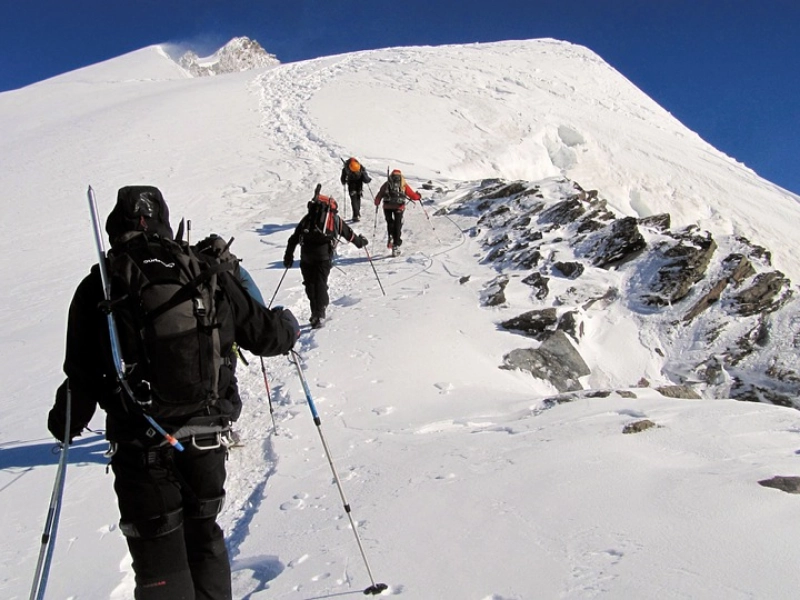 One hobby that can present a chance to find new inner strengths is mountaineering. It's also an opportunity to travel to beautiful, far-off places and form enduring friendships. That said, not everyone can participate in the activity due to the high level of physical demand and skill development.
When life seems to be opening up a little more in their 40s, 50s, or 60s, many individuals begin climbing. At this age, climbing destinations are typically easier to reach, and it's a good idea to prepare the body for the demanding activity.
Running on elevated trails or using an indoor stair climber is a great way to get ready for mountaineering for individuals who haven't started a fitness regimen yet. To guarantee they are in top physical shape for their journey, the majority of mountaineers also start eating a diet heavy in protein and drinking lots of water. Because mountaineering can result in several injuries, it's also crucial to have a fully supplied medical kit.
One hobby that can present a chance to find new inner strengths is mountaineering. It's also an opportunity to travel to beautiful, far-off places and form enduring friendships. That said, not everyone can participate in the activity due to the high level of physical demand and skill development.
When life seems to be opening up a little more in their 40s, 50s, or 60s, many individuals begin climbing. At this age, climbing destinations are typically easier to reach, and it's a good idea to prepare the body for the demanding activity.
Running on elevated trails or using an indoor stair climber is a great way to get ready for mountaineering for individuals who haven't started a fitness regimen yet. To guarantee they are in top physical shape for their journey, the majority of mountaineers also start eating a diet heavy in protein and drinking lots of water. Because mountaineering can result in several injuries, it's also crucial to have a fully supplied medical kit.
